Evaluating LLM Providers Performance vs Cost with Openrouter
April 15, 2024
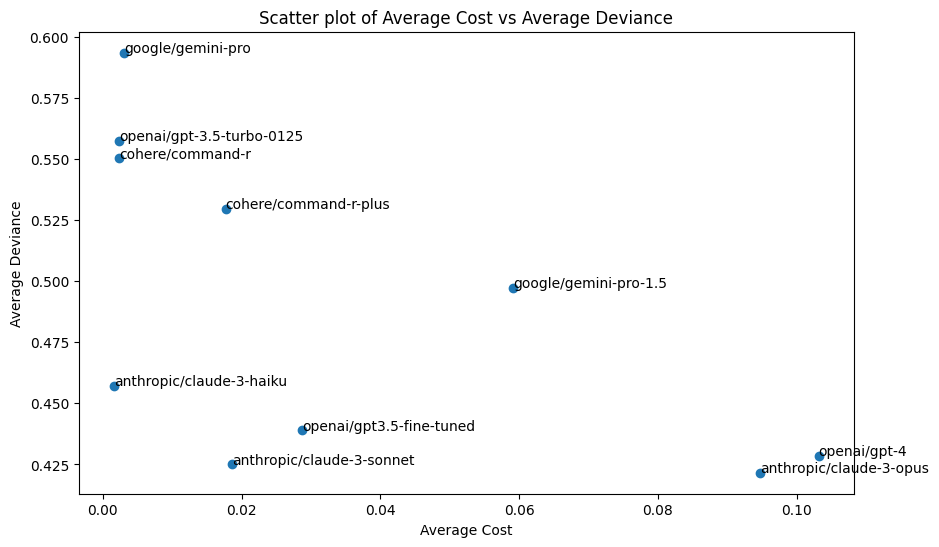
Five Learnings From Running 100 Miles
July 27, 2023

Notes on Drive: The Surprising Truth About What Motivates Us
August 09, 2022
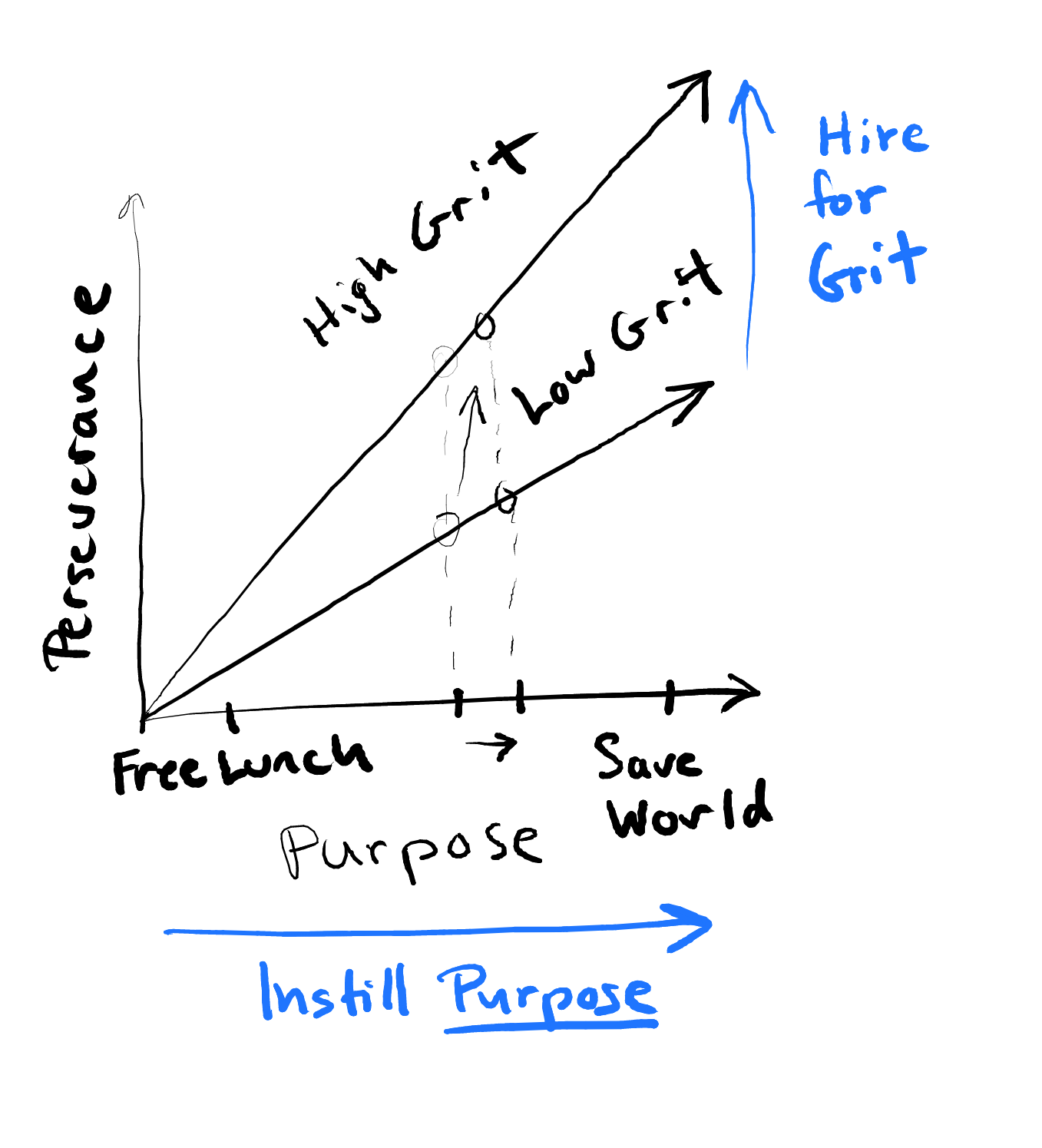
Strength Workout
July 16, 2022
A simple workout focused on injury prevention
2022 Readings
April 14, 2022

Visualizing Personal Finances with Matplotlib
March 27, 2022
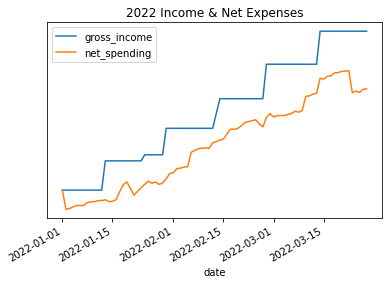
2021 Readings
May 09, 2021

New Year Goals
January 10, 2021
Small goals for the new years
Building An Analytics Stack In 2020
March 29, 2020
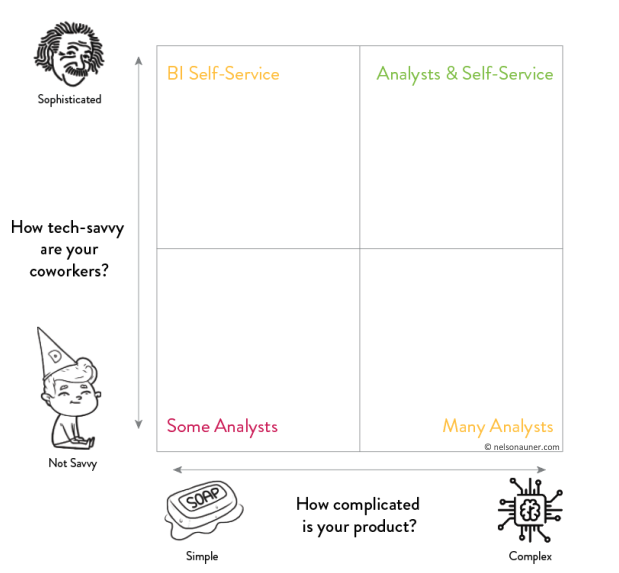
What I learned building analytics from scratch
H1 Readings
July 03, 2019
Q1 Book List
March 31, 2019
- Titan: The Life of John D. Rockefeller, Sr., Ron Chernow
- Testosterone, Joe Herbert
- A Bridge Too Far, Cornelius Ryan
- The Storm Before the Storm: The Beginning of the End of the Roman Republic, Mike Duncan
Blog Post On Active Learning
March 15, 2019
I wrote a short blog post for Coalition: Improving Cyber Underwriting With Active Learning
Price Optimization With Adverse Selection
February 11, 2019
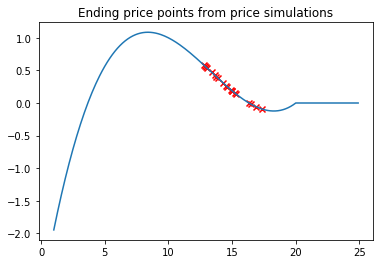
The difference between pricing insurance and pricing bananas
X Financial Releases F 1
September 17, 2018
https://www.sec.gov/Archives/edgar/data/1725033/000104746918006246/a2236705zf-1a.htm
Also, a book probably worth reading: https://commoncog.com/blog/so-good-they-cant-ignore-you/
Microbrands Take Over
September 13, 2018
These days my Instagram feed feels more like QVC than a social network
Terrible Graph O The Day
July 31, 2018
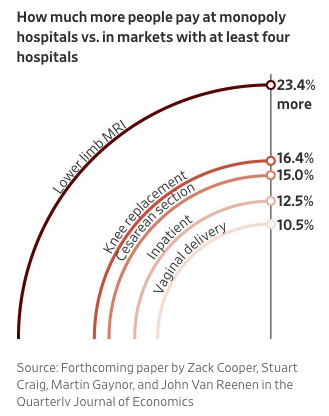
Venmo removes browser payments - and you should too
July 16, 2018
Why more financial systems should kill website functionality
Stock Options and the Lying Liars Who Don't Want to Expense Them
July 03, 2018
Still rings true, still not expensed
Wrap Statsmodels In Sklearn
May 21, 2018
How to use sklearn cross-validation on a statsmodel formula-style model
Fraud False Positives In Wsj
April 19, 2018
Why Paying For Fast Shipping Could Get You Flagged As a Fraudster
Must have been a slow newsday
2018 Race Schedule Up
January 22, 2018
Community Reinvestment Act Under Revision
January 10, 2018
A recent WSJ Article reports that the Trump administration is planning on revamping the 1977 Community Reinvestment Act (CRA), which requires banks to serve low-and-moderate income (LMI) neighborhoods and be evaluated for compliance. You can search the CRA ratings history of any bank here.
One of the inputs is the number of physical branches in LMI income census tracts. The WSJ suggested that this has led banks to open branches in financial district/downtown areas, which often are classified as LMI but have very few residents (article: Never Mind the Ferrari Showroom, Bank Regulators Say This Is A Poor Neighborhood). A tract in downtown San Francisco, for example, had 53 bank branches in a LMI tract with less than 2,000 total residents. These branches are probably not primarily serving LMI residents, but instead, office workers that live in other neighborhoods and use the downtown branches during the workday.
This is an interesting examples of well-intentioned but ultimately perverse incentives in regulation and I’m excited to see the proposed changes.
Thaler Wins Nobel For Behavioral Econ
October 09, 2017
Prospect theory contains four main elements.
First, individuals derive utility not from wealth (or consumption) levels, but rather from gains and losses relative to some reference point.
Second, individuals are more sensitive to losses than to gains, i.e., they exhibit loss aversion. The utility function captures the loss aversion of individuals in a kink at the reference point, with the function being steeper in the losses region compared to the gains region.
Third, individuals exhibit diminishing sensitivity to gains and losses, i.e., moving from a $100 to a $200 gain (or loss) has a larger utility impact than moving from a $10,100 to a $10,200 gain (or loss).
Fourth, the theory incorporates probability weighting: individuals weigh outcomes by subjective, transformed probabilities or decision weights, overweighting low probabilities and underweighting high probabilities.
Prize Announcement and Research Summary
Send Your Google Cal Availability Quick
July 14, 2017
Someone asks you for your availability. You don’t want to share with them your calendar details or work through gmail’s menu of shared calendar settings.
Fire up the javascript console from within chrome and hit it:
function replaceText(selector) {
var elems = document.getElementsByClassName(selector), i;
for (i = 0; i < elems.length; i++)
elems[i].innerHTML = 'busy';
}
//some type of google cal span
replaceText('evt-lk')
//another type of google cal span
replaceText('cbrdcc')
//location details
replaceText('cloc')
Styrofoam Cup Training
July 01, 2017
Successful training is exactly like turning a Styrofoam cup inside out. So long as you take it slowly, you’ll be able to do it. Try to rush things and you’ll tear the cup. You are the cup.
- Going Long, Joe Friel & Gordon Byrn
Q2 Articles To Read
June 27, 2017
Online Lender Rates Comparison
June 22, 2017
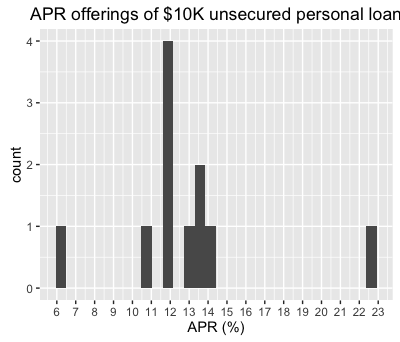
Q4 Articles Worth Reading
October 06, 2016
CB: Let’s talk about Math. What are statistical skills that any data-driven person should be comfortable with?
LK: Basic regression techniques are widely used but poorly understood. You need to know when assumptions break down and how to interpret results accurately. Difference in differences, instrumental variables, and discontinuity analysis are commonplace tools with a lot of applied value.
Articles
Analyze your email with python
The prevalence of statistical reporting errors in psychology
Text analysis of Trump’s tweets confirms he writes only the (angrier) Android half
Using Collections On A Jekyll Blog
September 15, 2016
Here's how I recently moved all of my race information from a hardcoded html table to jekyll’s built-in collection feature
Payments And Pricing
August 18, 2016

Some interesting readings.
Gunung Kerinci Ascent
January 01, 2016

Dplyr Stack Overflow
November 01, 2015
I joined stack overflows and answered a couple of dplyr-related questions.
My favorite one involved twisting eval(parse()) to apply generic ANOVA’s to
grouped data.
-
My favorite: Apply anova over subsets of data
If you’re a SO (or dplyr) veteran, let me know what I can do better!
R With Amazon Redshift
October 01, 2015

Analyzing Negotiation Genius
May 29, 2015
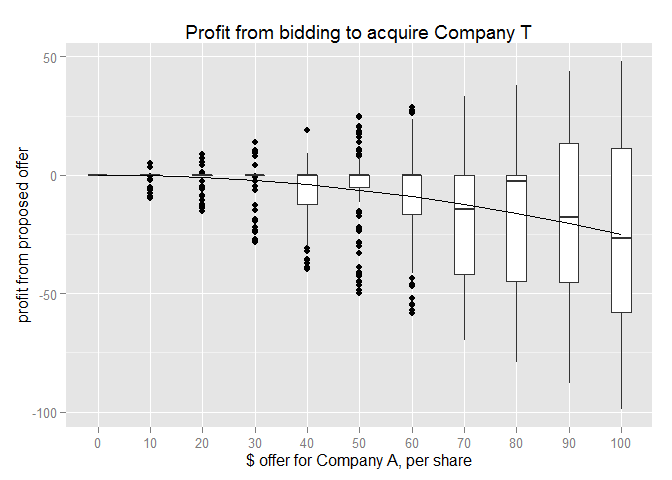
New Site Style Soon
May 05, 2015
I’m going to update the css of my site. I wrote this in college and it looked cool in 2010 when I didn’t know any CSS. Now it doesn’t look good so I will change it.
Contributing To R Graphics Gallery
May 05, 2015
I recently put out a pull request for romain francois’ long defunct R Graphics Gallery, which used to be an awesome site! Hopefully it will be accepted. Check it out at github
Correlated Regressors and R Markdown
May 02, 2015

Halloween Magic With Functionals
October 30, 2014

Happy Halloween! This post explores the trendy %>% operator to add aspects of functional programming to R.
Dplyr And Datatable
October 07, 2014
Working with very smart people from other schools has been great for improving R skills, and for better understanding the ones (I thought) I already knew.
A common task is the classic Split-Apply-Combine formula, whereby a dataset is broken into chunks (perhaps country-wide data broken into states) then an operation is performed (e.g. the standard deviation of earnings data in each state), and then the results put back together into a table.
I used to perform these operations with plyr. I now use dplyr, its faster, newer relative that is specialized for data frames. Also used in the office is data.table, which has been shown to be faster, as of April 2014. A serious back-and-forth between the two amazingly talented creators of the packages can be found here.
Why do I use dplyr instead of the slightly faster data.table? A good overview can be found at ZevRoss, but the recent merge of syntax in dplyr and magrittr to use %>% as a common pipe operator means that functional programming is here to stay.
The best tutorial of dplyr comes straight from Hadley’s dropbox and includes references to Allie Brosh’s Hyperbole and a Half and also an interesting diagram of where dplyr fits in with the rest of Hadley’s packages.
…Now, back to parallelization
Data Science at Imperial College, London
August 03, 2014

I’ll be spending August at the Data Science institute of Imperial College, London. They have collaberative corporate relationships with companies like Huawei and KPMG. I’m not sure if Universities in the US are as adept and collaberating with the private sector (for better or for worse, I don’t know). I’ll be working on an interactive visualization for the Supercomputing conference this November.
Hiking trip in Montana
July 07, 2014

Hackathon in Amsterdam
June 24, 2014
I had the opportunity to attend this year’s Open Science Data Cloud (OSDC) conference, at the University of Amsterdam.
OSDC is a cloud hosting organization for open science (duh) They provide academic researchers with a secure, dedicated compute cloud and have interesting projects in biology and geospatial analysis. They also push for reproducible research in academia, which is a critical need. (link to picketty)
The conference ended with a casual hackathon contest, judged by professors and post-docs from several universities.
My partner and I, Cody Buntain, won 1st place for Mayfly a series of bash scripts that installs dropbox on a computer and uploads the contents of a directory to a custom folder and then returning a public-viewing link.
We hope to make it easier for people to begin reproducible research by making it dead-simple to share your code and output with collaberators. Surely, I thought, there must be a middle ground between emailing out large code files (which some professors do) and learning knitr (which most professors don’t). With Mayfly, the dropbox folder always contains the most up-to-date code. For programs like knitr, dropbox’s ability to view html files online means that results are viewable without downloading anything!
Knitr and git and all of these “cutting edge” (at least in academia) tools are great, but what’s the point if only 5% of professors use them? Expanding the use of reproducible research is perhaps more important than increasing its sophistication.
Data Vizualization Challenge
June 10, 2014
I’m very honored to have been awarded first place in UChicago’s Data Visualization Challenge for “Making Indonesia”, a website with a series of graphs and an interactive visualization exploring Indonesia’s manufacturing sector. You can explore the website here.
My favorite entry of the competition was Kevin Wang’s Can I graduate.
Zero To Windows 8.1 In Ten Minutes
May 23, 2014
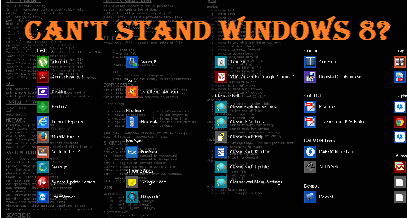
After hearing many friends express frusturation with windows 8.1, I wrote a short guide to help restore producity (and perhaps sanity), as well as learn something new
Text Analysis Research
May 13, 2014
A short presentation on text analysis
Cannot Find Vcvarsall
May 03, 2014
A fix for a common windows python error
Evaluating Chicago's Violence Reduction Initiative
March 10, 2014
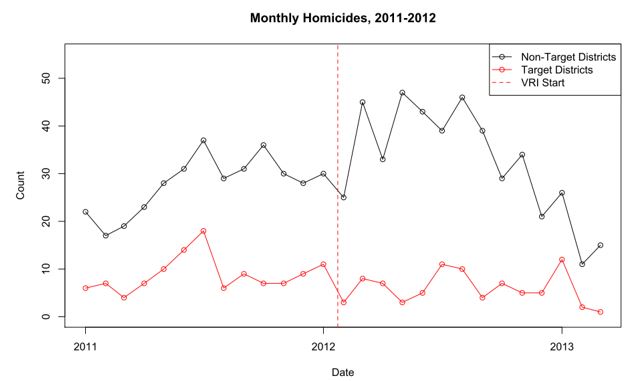
A paper I co-wrote with a classmate on Chicago's controversial (and expensive) Violence Reduction Initiative has been published in the Nottingham Economic Review
R: Love, Money & Bitcoins
February 15, 2014
My favorite articles from the past month
Fun with Ctypes
February 03, 2014
So this is what I'm up to these days:
Come and run the Chicago Spring half marathon!
February 02, 2014
I’ve signed up to run my second Chicago Spring Half Marathon. I ran it last year with a group from UChicago Road Runner. The race is a ton of fun, and I’m trying to beat my previous time. Sign up here $70, (includes a great brunch, very good support stations) and come run with us!
New Year, New Website
January 02, 2014
I’ve rewritten my site using Jekyll, and hosting it on my own domain, as opposed to the University-provided home page. It’ll be, at worst, a fun experiment! The old website, which is honestly better looking, can be found here
Enova Data Competition
October 15, 2013
I was awarded 1st place, along with teammate Zi Chong Kao , in Enova financial’s data competition. Our presentation (code available upon request)
Trip to Tana Toraja
August 06, 2013
During the month of Ramadan, a friend and I decided to hike through parts of Tana Toraja, a popular wilderness destination in Sulaweisi, one of the large islands of Indonesia.
New Projects
June 15, 2013
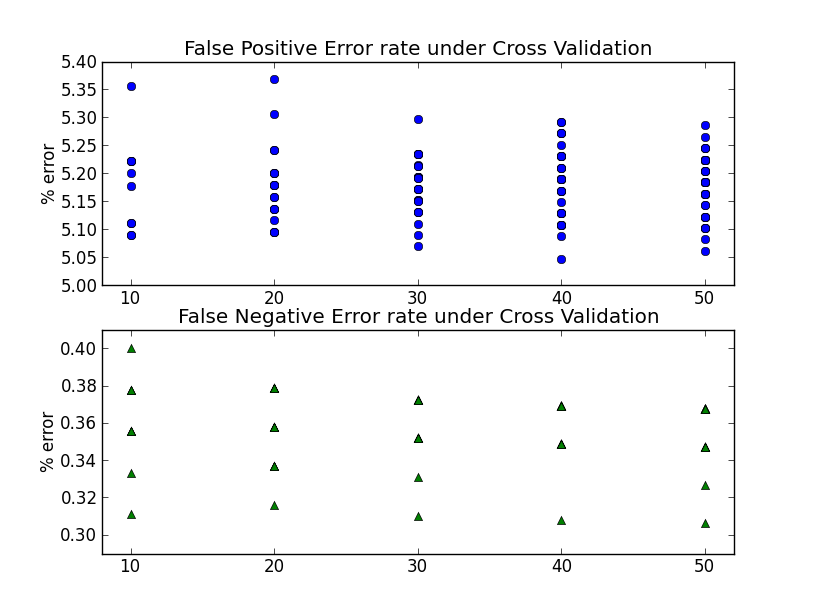
Several interesting new projects, including examining cross validation using Amazon’s EC2 for a census data set. The picture is a visual interpreation of the false positive and false negative of logistical regression on earnings > $50K, using census education data.
A Run In The Hills Of Oaxaca
March 15, 2013
I had a truly beautiful run in the hills to the north east of the city. If you want a retreat away from the craziness of the city, check out this route!
Greetings From Oaxaca
January 15, 2013

Greetings from Oaxaca! The city of Oaxaca is a beautiful place and I can’t wait to explore the countryside. Keep your eyes peeled for further updates and likely some running maps.
Mentioned in Chilean Newpaper El Mercurio
December 12, 2012
The Chilean national newspaper EL Mercurio wrote an interesting article on the experience of the myself and the other international interns at the Chilean Ministry of Finance in the summer of 2012. We were the first batch of international interns as part of the Ministry’s Practicas program, which has now expanded from Harvard and UChicago to several Universities in the US and UK.
Trip To Pucon
July 08, 2012

A travel journal of an amazing trip to Pucon
Learn To Use A Vpn
April 04, 2011
- Using a Virtual Private Network as a UChicago student
UChicago's VPN (Cisco Anyconnect)
What is a virtual private network?
Basically, when you use a VPN (virtual private network), your computer first connects to Uchicago computers. Then, Uchicago computers access the webpage you want and send it to your computer. For the websites you access, it appears as if you are a computer at UChicago. This way, you can access content only available in the US (hulu, Pandora, facebook in China, etc). It also improves security and protects your identity by not revealing your location and IP address.
How to access UChicago's VPN?</br>
- Download the client free at UChicago's VPN (Cisco Anyconnect)
Install the client on your computer
Open the client (called cisco Anyconnect VPN client) on your computer and enter your credentials (cnet ID and password)
</br>